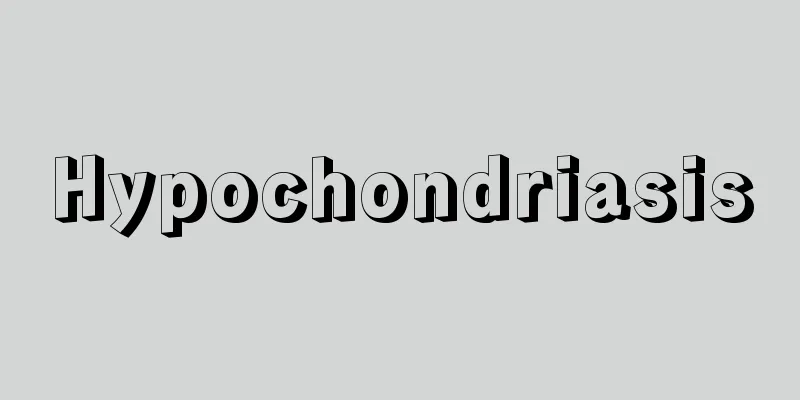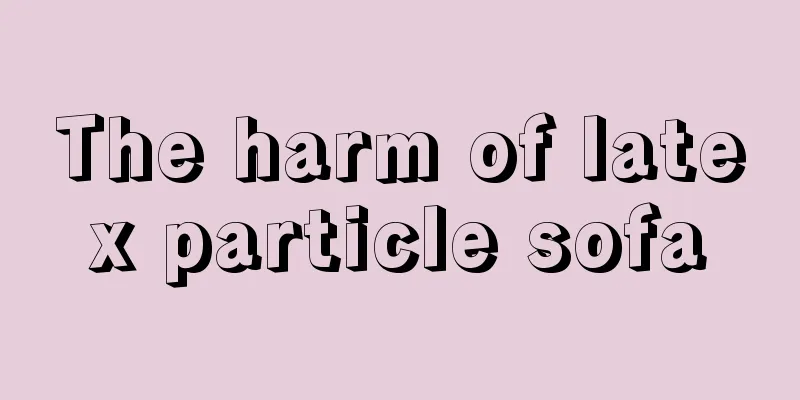What medicine should I take for poor gastrointestinal absorption and indigestion

|
Our daily diet goes through a process of digestion and absorption. Good digestion can effectively convert it into various nutrients needed by the body. However, some people's gastrointestinal absorption and digestion ability is not very good, which may cause them to suffer from malabsorption syndrome. They need to be treated in time, otherwise it will have a great impact. So, what medicine should I take if I have poor gastrointestinal absorption and digestion? Let’s take a look below. 1. Nutritional support therapy Choose according to the degree of digestive and absorption disorders and low nutritional status. A daily fecal fat amount of more than 30g is severe digestion and absorption disorder, 7-10g is mild, and between the two is moderate. Patients with low serum total protein and total cholesterol should be considered to be in a state of severe malnutrition. In mild cases, diet therapy alone can improve the condition. The diet should be low in fat (10g/d), high in protein [1.5g/(kg/d)], high in calories [10032-12540kJ (2400-3000kcal)/d or 167-209kJ (40-50kcal)/(kg/d)], and low in fiber. Dehydration, electrolyte imbalance, severe anemia and hypoproteinemia should be corrected by intravenous rehydration and blood transfusion. Patients with severe digestive and absorption disorders and difficulty in enteral nutrition should receive central venous nutrition. 2. Etiology and Treatment 1. Patients with lactase deficiency and lactose malabsorption should limit the intake of lactose-containing foods and give lactase preparations at a ratio of 1g to 10g of lactose. 2. Pancreatic digestive disorders are an absolute indication for digestive enzyme drugs. The dosage of digestive enzymes should be large, 3-5 times the usual dosage. 3. For bile acid diarrhea caused by terminal ileal resection and other reasons, cholestyramine 10-15g/d can be used. 4. For patients with intestinal lymphangiectasia and fat transport disorder, limit the intake of long-chain fatty acids and give medium-chain fatty acids. 5. Patients with gluten-induced enteropathy should avoid eating gluten-containing foods, such as barley, wheat, oats and rye. The gluten in the flour can be removed before consumption. Other treatments 1. Follow the nursing routine for digestive system diseases. 2. Eat a low-residue, low-fat, easily digestible diet; people with celiac disease should avoid eating gluten-containing foods such as wheat, barley, and oats; people with lactase deficiency should avoid eating dairy products. Patients with severe conditions can receive intravenous hypernutrition therapy, including fat emulsion, compound amino acids, albumin, etc., and plasma transfusion when necessary. 3. Actively treat the cause: Malabsorption caused by Whipple's disease, tropical Sprague-Dawley syndrome and blind loop syndrome requires treatment with antibiotics such as tetracycline, ofloxacin and metronidazole. Celiac disease can be treated with hormones. Malabsorption caused by lymphoma and Crohn's disease can be treated surgically. Pancreatic malabsorption can be treated with pancreatic enzyme tablets or dried animal pancreas. 4. Supplement various vitamins: such as vitamin A, D, K, B12, other B vitamins and folic acid. People with iron deficiency anemia can take ferrous sulfate pills or ferrous sulfate. 5. Symptomatic treatment: Patients with severe diarrhea can be treated with bismuth subcarbonate, diphenoxylate compound or Imodium, and water and electrolyte imbalance can be corrected at the same time. For critically ill patients who have been excluded from infection or cancer, glucocorticoid treatment may be tried. 6. Treatment based on syndrome differentiation in Chinese medicine: For patients with spleen and stomach deficiency, tonify the spleen and regulate the middle, use Shenling Baizhu San with modifications; for patients with spleen and kidney yang deficiency, warm and tonify the spleen and kidney, use Sishen Wan or Fuzi Lizhong Tang with modifications; for patients with liver and spleen disharmony, harmonize the liver and spleen, use Tongxie Yaofang with modifications. |
<<: Sequelae of brain tumor resection
Recommend
Does barium sulfate dissolve in dilute nitric acid?
Barium sulfate is an X-ray contrast agent. It can...
What should I do if my tattooed eyebrows turn red?
Eyebrow tattooing is very popular now. With the c...
What are the specialties of Honghe Prefecture?
The Honghe Prefecture that people often talk abou...
Pain in the back of the calf
Exercising for a long time or encountering any un...
Causes of gum recession, 5 reasons to be vigilant
Many adults suffer from gingival atrophy, but it ...
How to put on makeup correctly?
As the saying goes, there are no ugly women in th...
How to prevent prostate cancer How to prevent prostate cancer
Prostate cancer is a common malignant tumor of th...
How is the early stage of colorectal cancer identified?
Early stage of colorectal cancer diagnosis: stool...
What are the kidney detoxification points and what other detoxification methods are there?
The function of the kidneys is to regulate the ba...
Why are my toes numb?
The toes are a part of our lower limbs. They give...
What causes nasopharyngeal cancer?
The treatment of nasopharyngeal carcinoma require...
What exercises can be done to prevent prostate cancer
What kind of exercise can you do to prevent prost...
What should liver cancer patients pay attention to during chemotherapy? How is the effect of traditional Chinese medicine treatment of liver cancer?
What should liver cancer patients pay attention t...
Can drinking chrysanthemum tea cure acne?
Acne is a phenomenon that many young people will ...
What causes sore feet and groins?
Calf pain is a symptom that many people may easil...









